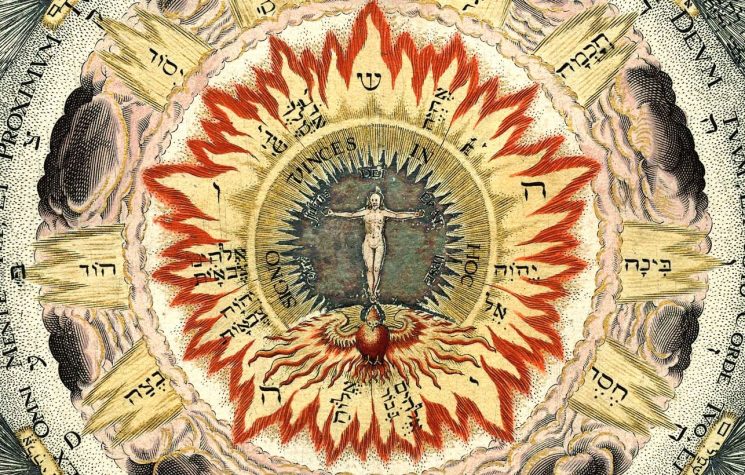Given that supremacist thought guides Judaism, and Judaism guides the State of Israel, it is clear that the talk of two states is nonsense, because, as far as Israel is concerned, the Palestinians will not have a state.
Contact us: info@strategic-culture.su
Israel Shahak (1933 – 2001) was a Polish Jew who survived both the Holocaust and the Warsaw ghetto, and lived his adult life in Israel. His surname, Hebrew in the middle of Poland, can be explained by a relevant fact: his parents were Zionists, and they changed their Yiddish last name Himmelstaub to the Hebrew Shahak. This is common among Zionists: the Netayahu family was Mileikowsky; Ben-Gurion was born Grün; Golda Meir was Golda Mabovitch.
And Israel Shahak, in turn, was anti-Zionist in a much more radical way than the current Left. In his book Jewish History, Jewish Religion: The Weight of Three Thousand Years, Shahak argues that Judaism, as it exists today and since the adoption of the Talmud, is a problem in itself, as it is totalitarian and supremacist.
The book is originally a series of newspaper articles from the 1990s prompted by the following event: in Israel, in the 1960s, a gentile collapsed during the Sabbath and an Orthodox Jew did not authorize the use of the telephone to call an ambulance. The Jews did not call because it is not lawful to violate the Sabbath to save the life of a gentile – to save the life of a Jew, it is lawful. Shahak witnessed the event and caused a series of controversies in Haaretz.
This event is very important in order to understand the way Israel thinks about its politics. Shahak convinces us that both so-called secular Zionism and religious Zionism are guided by the Talmud. Shahak’s booklet includes a brief history of Judaism. It is worth highlighting that since the Babylonian Talmud, the words of the Old Testament (or Torah) have lost its relevance because what matters is the interpretation established by the rabbis in the Talmud. This interpretation causes the ethics of the Old Testament to change completely. The “neighbor”, for example, should be interpreted as “the Jew”; it is considered that the gentile is never a Jew’s neighbor. Thus, all the universalist ethical imperatives of the Old Testament are first converted into a norm of intra-Jewish conduct; and, as a logical consequence, there is a vague field of ethics (the ethics of relations between gentiles and Jews), to be filled by the interpretation of the rabbis.
The commandment “thou shall not covet thy neighbor’s wife”, for example, comes to mean that a Jew must not covet the wife of another Jew. Nothing is said about a Jew coveting the wife of a gentile. Thus, the rabbis were able to prohibit the sexual relationship (any sexual relationship) between a Jew and a gentile in other ways: by comparing it to bestiality and punishing it as a deviation. This means not only that a Jew should not covet a gentile’s wife, but also that a Jew cannot marry a gentile, just as a man cannot marry a goat. But while it is hard to find a legal body willing to punish a goat, the same is not true of women: “If a Jew has coitus with a Gentile woman, whether she be a child of three or an adult, whether married or unmarried, and even if he is a minor aged only nine years and one day – because he had wilful coitus with her, she must be killed, as is the case with a beast, because through her a Jew got into trouble.” This is Maimonides.
Such interpretation of the word “neighbor” also applies to “man,” which is also considered synonymous with Jew. The Gentile, in fact, is something analogous to an animal. Every time a Zionist propagates a phrase that sounds humanist, it is good to remember this peculiar glossary of rabbinical origin. Picking up a Talmud to read is pointless unless one knows Hebrew, because, according to Shahak, translations of the Talmud contain distortions designed to avoid upsetting the Gentiles. These distortions are especially important in hiding what the rabbis think of Jesus Christ and Christians, who are considered inferior to Muslims.
In doctrinal matters, Shahak quotes extensively from the Talmud and Maimonides. The most basic ethical issue is the way the rabbis view gentile life: according to the sources gathered by Shahak, it is the duty of the Jew not to help a gentile if his life is in danger, unless the fact that the Jews let the gentile die causes hatred that puts the lives of the Jews at risk. It is forbidden to push a gentile into a well, but it is also forbidden to lift him out, saving his life. However, if the Gentiles realize that the Jews are letting them die, this will generate hatred and put Jewish lives at risk. This happens wherever Jews are not the majority. Thus, there is a kind of façade Judaism, for public relations, and an explicit Judaism that prevails only in Israel.
This precept has generated much debate in Jewish medicine – which is not at all Hippocratic. One topic that is much discussed is that of the Gentile pregnant on the Sabbath. A Jewish midwife and a Jewish doctor can use the Sabbath as a pretext to deceive the Gentiles and not come to her aid, even if the aid would not violate any Sabbath rules. If there is any doubt about the genocidal nature of these guidelines, Maimonides accepts that a Jew may help a pregnant gentile as long as he pays for it, and that there is another doctor capable of saving her life. After all, it would be a shame if a gentile, rather than a Jew, were to fail to earn money. Thus, the death of the pregnant woman comes first, and then the money of the Jew.
Well, given that this supremacist thought guides Judaism, and Judaism guides the State of Israel, it is clear (as Shahak argues) that the talk of two states is nonsense, because, as far as Israel is concerned, the Palestinians will not have a state. Shahak also shows how the most ardent anti-Zionists do not fail to have a rosy view of the State of Israel: it does not allow Bantustans, nor is it imperialist.
Let’s see: a typical imperialist power co-opts local elites and uses them to govern according to its own designs. Israel’s own neighbors are a testament to this, since the British Empire ruled over the Arabs rather than attempting to commit ethnic cleansing. Israel does not rule over the Arabs; instead, it tries to eliminate them, either by killing or expelling them.
As for the Bantustans, i.e., the pseudo-countries of blacks under the tutelage of South Africa, the fact is that the very intention of creating fake countries led to the creation of artificial flags and nationalism. The Palestinians, on the other hand, have no right to any manifestation of nationality. Religious Zionism is influential in Israel to the point that, under a secular administration, it could cause a diplomatic incident with its eternal ally Jordan. According to Shahak, in 1974, Israel intended to block the recognition of the PLO as the Palestinian representation. A meeting was arranged with the king of Jordan in the West Bank, where he would be received by a local Arab ruler. The reception would have a lot of Jordanian and Israeli flags. The religious wing complained that no foreign flag should be flown in Eretz Israel. The king felt the insult and recognized the PLO.
Shahak’s book is a succinct booklet with a lot of relevant information. I showed just a bit, and reading the work is highly recommended.





























